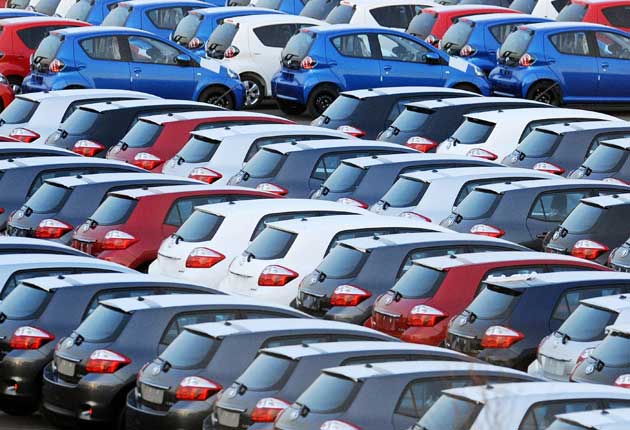My car insurance was double – what happened to rewarding loyalty?

Sophie Spooner's car insurance was due for renewal this week. Having been with Tesco Insurance for nine years, the Cardiff-based PR executive expected to renew with the same company. But she changed her mind when she got their quote for the next 12 months.
"The quote was almost double what I paid last year," she says. "I understand new laws are in place and lots of fake claims have cost the industry billions, but why would Tesco double my quote? I would have understood if they kept it the same price and didn't offer a discount, but no. It seems long gone are the days you get rewarded for being loyal."
Last year Sophie was charged around £450. This week Tesco's renewal letter increased the price to £885.16. "The worst thing is that when I shopped around, I found a quote about £200 cheaper. When I mentioned this to Tesco, the best they said they could get my quote to was £811. I've been with Tesco for nine years, ever since I started driving, and this is the first year they have declined to beat a competitive quote. It's outrageous!"
Sophie's not the only one who's going to get a shock when it comes time to renew car insurance. Premiums are soaring as insurers look to cover increased fraud costs and years of relatively underpriced competitive cover.
The latest AA British Insurance Premium Index revealed the average premium for an annual comprehensive car insurance policy is now £892, a rise of more than 40 per cent over the previous 12 months. The rise is the biggest annual increase ever recorded by the index, which has been tracking the quarterly movement of car and home insurance premiums since 1994.
Premiums are climbing fast because of rising fraud and injury claims, says the AA's Simon Douglas. "More people are withholding information when taking out a policy or exaggerating personal injury claims to try to reduce their costs. But this simply piles on costs for insurers and results in yet higher premiums for honest motorists." Despite the sharp increases, insurers are still making losses, he says. One estimate suggests the insurance industry has been paying out £1.20 for every £1 they received in premiums, which clearly can't be maintained.
Young people are being hit hardest according to research published by Confused this week. Newly qualified drivers can now expect to pay around £2,000 to insure a small hatchback. This time last year, the cheapest premium for a new driver insuring a Ford Ka for a year was less than £900. Now the best quote has soared to more than £1,900, the comparison site says.
Andy Goldby, director of underwriting and pricing at Direct Line, agrees that a rise in the number of personal injury claims is having a massive effect on the price of premiums. "More than £2.7m per day is paid to personal injury lawyers," he says. "A fifth of every premium goes to pay for whiplash claims. Add that to the £44 due to fraudulent claims and £30 to cover the cost of uninsured drivers, and it's easy to see why people are having to pay more."
Goldby says that, for the average driver, around 20 different rating factors are used to determine their individual price for car insurance. "The most influential of these are: postcode, age, driving experience, no claims discount, a driver's previous claims history and if they have any driving convictions," he explains. "Do not be tempted to mislead the insurer about any of these factors, as they can easily be checked and your claim may not be paid if you have acted fraudulently."
So how can you combat the rising cost of insuring your car? Aviva suggests: "Consider adding your spouse as a named driver. Though it sounds counter-intuitive, you should get a discount."
Tesco advises: "Try to be a bit sparing with the number of trips you take in your vehicle if you can and be aware of the number of miles you do each year, as higher mileage may mean an increase in the premium."
Direct Line says it's a good idea to look at the excess – the amount of money you are willing to pay in the event of an accident. The more you're willing to pay, the lower your premium.
If you have two cars, consider eliminating the courtesy car cover (if you have it), as in the event of not having the use of one car, you'll still have another you can share. If you have a second car, Aviva gives 15 per cent discount for each additional car.
Subscribe to Independent Premium to bookmark this article
Want to bookmark your favourite articles and stories to read or reference later? Start your Independent Premium subscription today.

Join our commenting forum
Join thought-provoking conversations, follow other Independent readers and see their replies